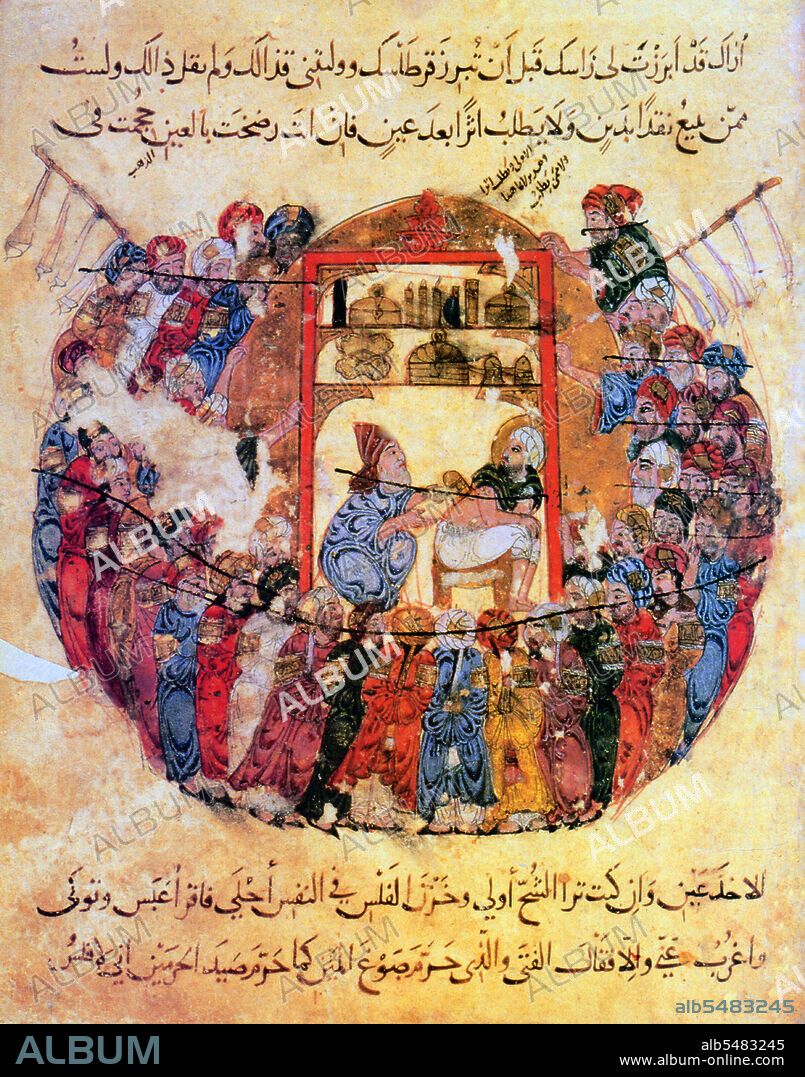alb5483245
Illustration of 'cupping' from al-Hariri's 'Maqama'.

|
Add to another lightbox |
|
Add to another lightbox |



Title:
Illustration of 'cupping' from al-Hariri's 'Maqama'.
Caption:
In this 1240 CE illustrated page from al-Hariri's 'Maqama', a roadside doctor is 'cupping' a patient's back when they begin to argue over payment. A crowd gathers to watch the spectacle, at which point the doctor and the patient reveal themselves to be actors and beg for alms before vanishing. The 'Maqama' are a collection of picaresque Arabic tales written in the form of rhymed prose in which rhetorical extravagance is conspicuous. The style was invented in the 10th century by Badi al-Zaman al-Hamadhani and extended by Abu Muhammed al-Qasim ibn Ali al-Hariri of Basra the following century. The protagonists in the tales are invariably silver-tongued hustlers, especially the roguish Abu Zaid al-Saruji, who trick the narrator and who live on their wits and dazzle onlookers with displays of acrobatics, acting and by reciting poetry.
Credit:
Album / Pictures From History/Universal Images Group
Releases:
Model: No - Property: No
Rights questions?
Rights questions?
Image size:
3720 x 4730 px | 50.3 MB
Print size:
31.5 x 40.0 cm | 12.4 x 15.8 in (300 dpi)
Keywords:
ANT. OR.: MESOPOTAMIA • ANTIQUITIES ORIENTAL: MESOPOTAMIA • ART • ARTS • ASIA • ASIAN • DRUGS • HEALER • HISTORIA UNIVERSAL • HISTORIA • HISTORICAL • HISTORY • IRAK • IRAQ • ISLAM • ISLAMIC • ISLAMISM • LEGEND • LETTERS • LITERATURA • LITERATURE • MAQAMA • MEDICINE • MESOPOTAMIA • MESOPOTAMIAN • MUSLIM • PAINT • PAINTING • WRITER
 Pinterest
Pinterest Twitter
Twitter Facebook
Facebook Copy link
Copy link Email
Email

